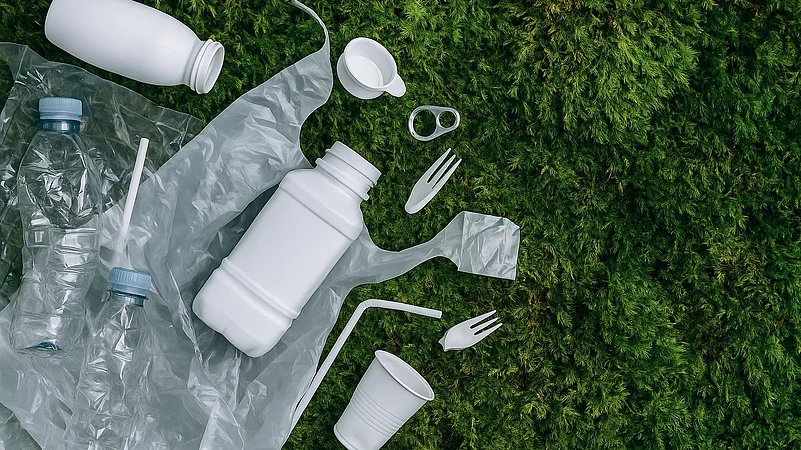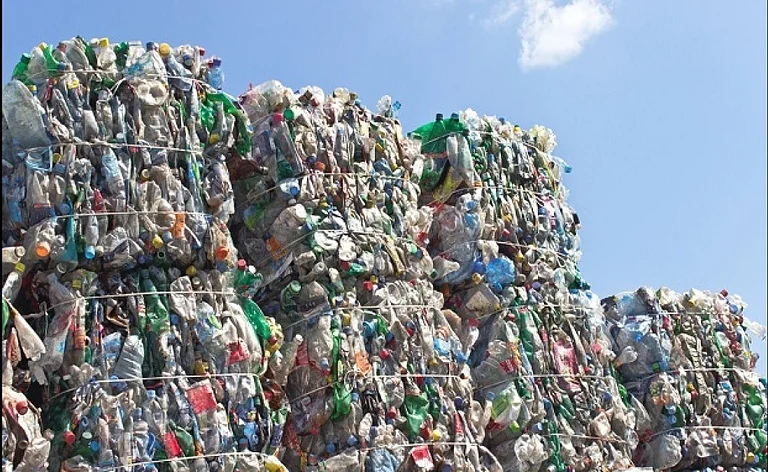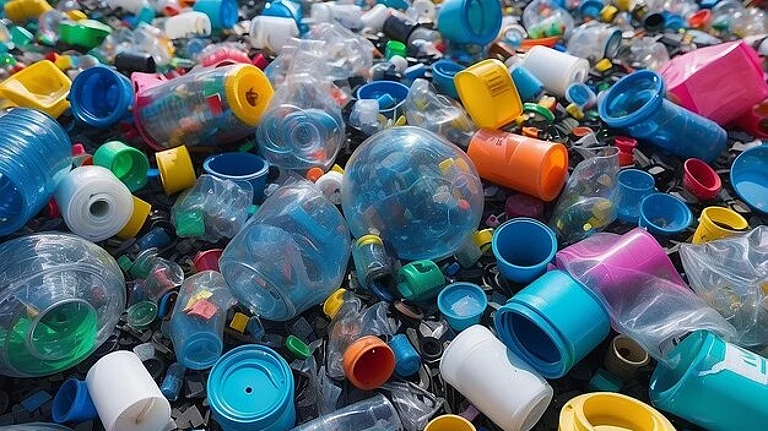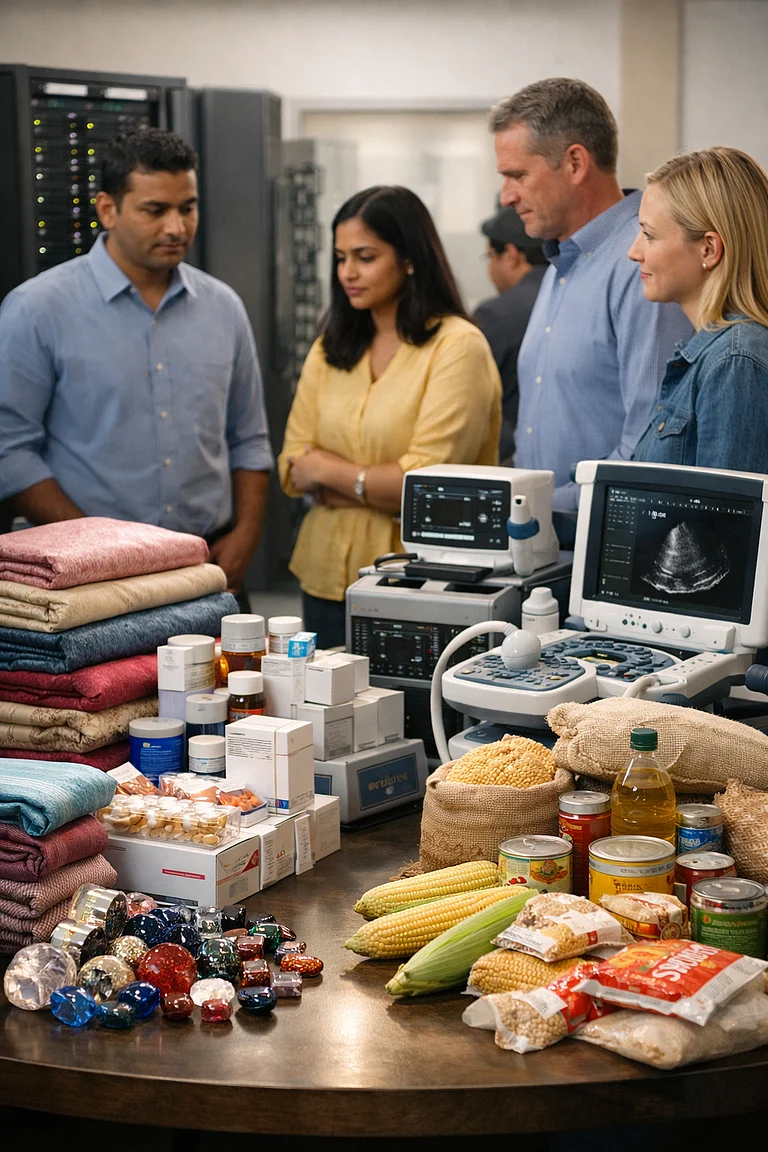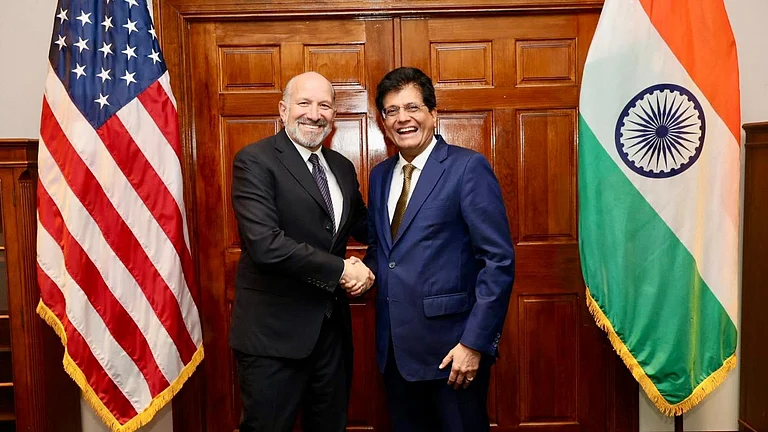The verdict is clear. Unless India acts urgently, recycled plastic will form just 11% of the 70.5mn tones of plastic the country is expected to consume annually by 2035—enough to sink its sustainability ambitions in a deluge of waste.
This means that nearly nine out of every ten plastic items would likely end up in landfills or leak into the environment. Sensing an opportunity in the crisis, start-ups such as Lucro Plastecycle, Banyan Nation and Plastics for Change are joining India’s war against the pollutant with a slew of innovative solutions.
For these ventures in the waste management space, the plastic conundrum signifies the start of something new—the nucleus of a whole new economy around trash, where profits can be combined with purpose. “We churn out material used in the manufacture of packaging and automobile parts,” says Ujwal Desai, co-founder at Lucro Plastecycle, a Mumbai-based waste-management firm.
Their work is essentially a take-off on established wisdom: substituting virgin plastics with recycled alternatives to reduce emissions by 20–50%. But how does India, where plastic waste continues to be almost entirely handled by a gaggle of disorganised units and workers, flip the switch?
War on Waste
Take, for instance, Lucro Plastecycle. The firm segregates the informally collected plastic waste, recycles and turns it into products used by the auto and fast-moving consumer goods (FMCG) industries in India. Additionally, it exports 30% of its produce.
“Of the 50,000 tonnes of waste we collect every year, we recycle 30,000 tonnes,” says Desai. This is 60%, compared to the national average of 11%. “We make and sell 17,000 tonnes of finished products from this recycled yield,” he adds.
The firm’s recycled plastic products have found several applications, from stretch wraps, industrial liner bags, which are used for packaging, to dashboards and other interior elements for cars. Challenges stemming from legacy issues like efficient waste collection and segregation, supply chain gaps and consumer perception persist, but the start-up and similar ventures are finding a way around them.
“The presence of informal and fragmented supply chains in the sector is as much of an impediment as the absence of a structured collection and sorting mechanism in Tier-II and Tier-III cities,” says Pratibha Dewett, chief sustainability officer at Lucro.
The Viability Bottleneck
But the real question facing start-ups in the recycled plastic space, the one that can make or break their fortunes, pertains to their viability. Can they survive in a market dominated by the widely adopted and abundantly available virgin plastic, that is, new plastic that has not been used or recycled before?
The going would be incredibly rough in the initial years, agree experts. Virgin plastics enjoy a massive advantage in terms of scale and without regulations curbing their production and mandating transition to recycled alternatives, start-ups recycling plastic may struggle to survive.
That said, at least on price, recycled plastics have significantly narrowed the gap. “Recycled plastics for most applications are quite competitive now,” says Desai. “They are either at par with virgin [plastic] or marginally higher or lower. The premium for recycled plastics, if any, has been pared down to 5–10%, due largely to technological interventions.”
On quality, too, recycled plastics have caught up. According to a sustainability report by professional-services firm KPMG India, recycled plastic products are now increasingly measuring up to the required standards for non-critical applications like building materials and fashion. However, they are still some distance away from replacing virgin plastics as the preferred option for food- or medical-grade packaging.
The general consensus, though, is that recycled plastics can scale to viable levels. A report by management-consulting firm McKinsey on global plastics emphasises that if advanced recycling processes continue to evolve, recycled plastics would fulfil 4–8% of the total global polymer demand by 2030 and account for $40bn in capital investment over the next decade.
Advanced recycling essentially uses plastic waste rather than fossil fuels for polymer production, diverting plastic waste from landfills and incineration facilities, both significant sources of emissions. “The technology has the potential for more than 20% year-over-year growth through 2030,” the report adds.
But achieving this target is going to require some work. The growth of plastic waste is an opportunity to turn it into new products, says Akshaya Rath, founder and chief executive of plastic waste management company EcoEx, but “unlocking scale requires ecosystem-wide coordination, tech maturity and consistent quality—especially in emerging economies where the potential is immense.”
The expert verdict on scalability is clear: the recycled plastic industry can thrive, especially if India mandates European-standard recycled content regulations. The latest amendment in the Plastic Waste Management rules is a step in that direction.
Poised for Growth
India’s recycled plastics market, valued at around $4.25bn in 2024, is projected to touch $6.52bn by 2033, according to market-research company iMARC. A regulatory push combined with strengthening corporate commitments to sustainability and rising consumer awareness is expected to be the primary driver of market expansion.
Experts believe that by focusing on producer responsibility, efficient sorting infrastructure and consumer education, India can inch closer to the pioneers in plastic recycling like Germany and Sweden.
With its ambitious Extended Producer Responsibility (EPR) Guidelines, the government has set the stage for the inclusion of plastic packaging within the circular economy. “Recognising the direction of this policy, the industry is aligning its business decision with the principles of circular economy,” says Seema Arora, deputy director general, Confederation of Indian Industry (CII).
Several brands are adopting the green ethic for their products and packaging. "However, scaling reuse will require the development of a comprehensive ecosystem, spanning reverse logistics, return systems, refilling, cleaning and standardisation," notes Arora.
Additionally, investor interest is on the rise, much of it fuelled by the increasing willingness of brands to incorporate recycled content to meet government compliance requirements and a growing preference of consumers for sustainable packaging materials.
According to Lucro’s co-founder, companies in this space are attracting funding because demand is rising, but domestic recycling capacities are still lacking. “New capacities won’t come up unless significant investment flows in. That’s what’s driving funding for us—and others like us who’ve raised substantial capital to scale up,” says Desai.
For India, plastic recycling is no longer just a waste problem—it's an economic opportunity that can create thousands of green jobs, cut carbon emissions and drive a circular economy. Enterprises turning plastic waste into building materials, textiles and lifestyle products are laying this foundation. Whether that foundation grows into a scalable, durable industry will depend on how swiftly the country moves.







